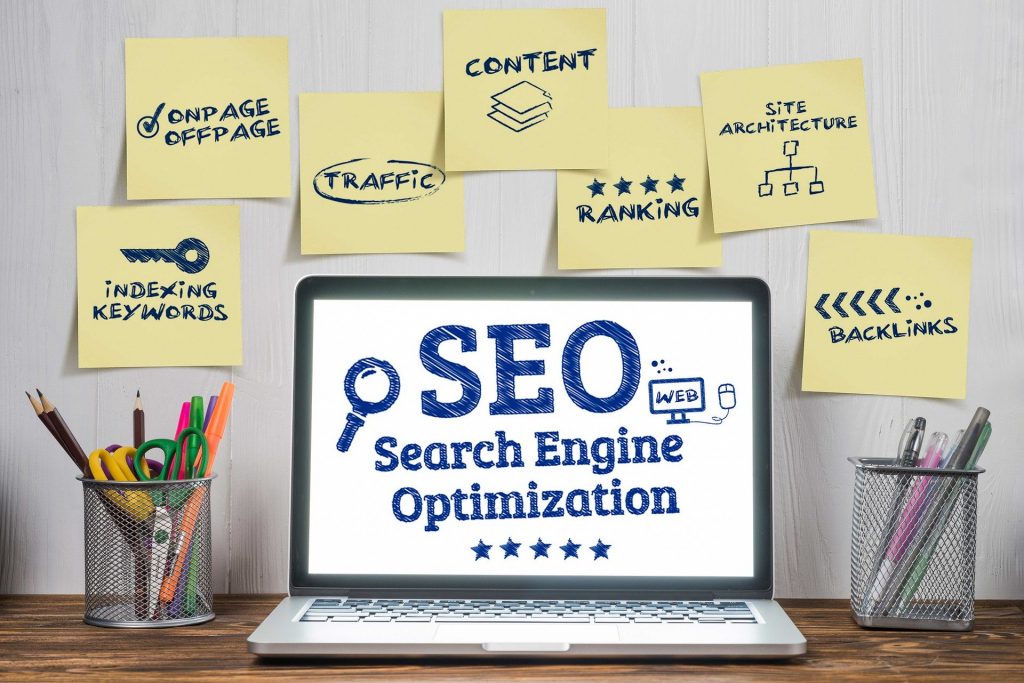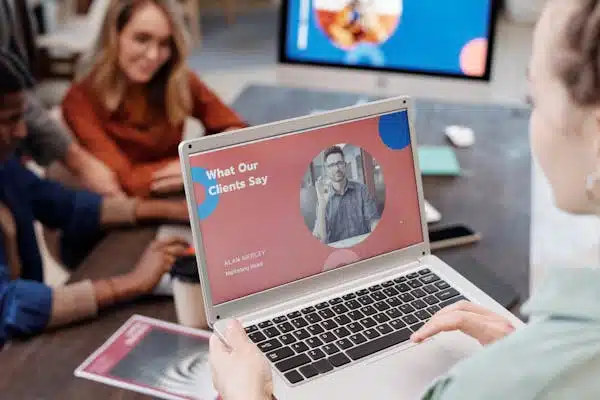This new normal we’re all a part of continues to evolve as every day passes. We must all learn to adapt to the circumstances. Many businesses have been forced to close. Some have adapted with e-commerce shops, but others aren’t set up for online sales. Although this may seem like adding more darkness to a situation that is already bleak, there is a ray of light. You have an opportunity to develop your SEO in this period to prepare for an eventual rebound.
Your small business needs to preserve its visibility and reputation. We know how uncertainty can lead to an unsettling feeling. But we believe in forming action plans in the face of challenges to help us do our part and manage what we can. In this post, we explore the importance of SEO and what you can do to improve your SEO during COVID-19.
What Is SEO?
SEO is an abbreviation for Search Engine Optimization. It is the driving force that backs all successful organic marketing strategies. SEO works by modifying your web pages and website design to make it easier for the search engine spiders to find your site. By doing this, SEO helps to boost your business website’s ranking in the Search Engine Results Page (SERP) so that potential customers can find your business.
The major search engines, such as Google, Yahoo, and Bing, use crawlers to collect the most essential and relevant information in the content they find across the web. The crawlers or “spiders” then pass along the results to the search engines to create an index that matches the information with common search queries.
Why Is It Important to Do Right Now?
If you’re trying to cut expenses, you may be watching your marketing spending. For many businesses, the SEO budget is the first thing to go. And while that’s understandable, it may not be the right decision for your company to pause or limit your SEO campaigns.
SEO is a major source of revenue and now during the pandemic is when you need it most. We understand that your company is likely taking a dive during this time. It would be naïve to say otherwise. But, instead of cutting down on your marketing efforts, it’s a wise decision to push as much new business as possible to cope in difficult times like these. You’ll want to make your business more visible to customers, not less, and you’ll be shocked at how quickly your rankings can tank if you halt SEO.
People are hungry for information right now. It’s a great time to improve your rankings, because people are spending more time searching for information and entertainment. Potential and existing customers are more likely than ever to surf the web and find your site while they’re stuck at home. Though the economic downturn may have hindered their buying (or visiting) abilities, the majority of them are still looking forward to taking advantage of your services in the future.
By staying adaptive and dedicating your strategy to SEO, you can focus on long-term customer acquisition. The key thing to remember is that we will return to some sort of normality. Doing SEO is like learning how to play an instrument. To be a top performer, you need to make a regular commitment. If not nurtured properly, even for a few weeks, you’ll quickly start to lose what you’ve gained, and everyone else will begin to outperform you. From a business standpoint, when the pandemic subsides, you could find yourself falling behind your competitors. Many of them will likely take this opportunity to climb higher and get better rankings. Ignoring SEO now could easily end up costing you in the long run–effectively extending the impact of the current crisis far beyond the end of stay-at-home orders. If you don’t start (or continue) SEO during the pandemic, you risk starting from scratch once it’s over. You may end up losing more money than you would save by pausing.
Even though the times are tough, you want to retain as much business as you can. Without a proper marketing strategy, it’s very difficult to stay afloat. Marketing drives sales. Sales turn into cash. Of course, the immediate ROI may not be as impressive as it was pre-pandemic, but marketing now will drive future customers to your door.
How to Use SEO to Drive Future Foot Traffic
1. Create new, rich, evergreen content for readers
If you want your website to appear on the search results pages, you need something engaging and relevant on your website. Your audience has time to read. Provide your audience with appropriate and beneficial content that aligns with the values of your business.
Put together long-form pieces that showcase your brand, your expertise, and what sets your business apart from the competition. For example, if one of your business’ core values is “providing value to the customer,” creating blog content on activities families can do while at home will not only give your customers some creative ideas, but will also show that you’re living up to your company’s promise.
2. Review and update your website’s content
As you can guess, the most popular search engine is Google. Since it’s the leader of all search engines, Google pretty much says why, what, and who will be placed on their search rankings. And the way to Google’s heart is by updating your website frequently with fresh, relevant information. Regularly updating your website with current, quality content will not only gather respect and loyalty from your visitors, but will place you in good standing with Google.
When was the last time you refreshed your homepage and its design? Do you have a slideshow featuring all of your services? When was the last time it was updated?
If your business has come to a halt at the moment, now is the time to look ahead and change your website’s content to best suit what your business is working towards in the coming months. If you have photos within a slideshow, consider refreshing those as well. Visuals and content can become stale after too long, and may inevitably lead customers to glaze over the messages they’re seeing. Even if you want the CTA (call-to-action) to remain the same, change the banner picture to help ignite new attention.
3. Dive into the technical aspects of SEO
Whether you’re using WordPress or another content management system, there are several ways you can incorporate SEO. The most important step is to start by doing your own research. What keywords do you want your business to show up for in the search engine results page (SERP)? Begin optimizing your content to include those specific keywords. Your goal is to gain the attention of users who find your web page because they’ve searched for your keyword.
Begin using H1, H2, and H3 tags throughout your content. These are heading tags that sort your content so that it’s easily read and understood by users. The use of heading tags also makes it easier for search engines to crawl and organize your web pages.
Start including meta descriptions throughout your site. This is another easy way to summarize your business’ services and content. With the help of meta descriptions, you can improve the click-through rate to your website from the SERP.
4. Create a better online user-experience
Having a website with a good and unique design is important, since your website is what generates and maintains traffic. Your small business’ website should help users understand your business in a simple manner and gather all the information they need. If your site is non-responsive or cluttered with features and meaningless information, chances are your bounce rates (how quickly visitors leave your site) will be high. If you provide a poor user experience, search engines will prefer other sites over yours.
Here at TrustWorkz, we are advocates for a responsive web design. A responsive website that nails a small business’ branding will provide major boosts in online and foot traffic. Take this time to work on a web design that has a fast loading time, is easy to use and read, caters to any user (desktop, mobile, tablet, etc), and prioritizes the content that you want a user to access first.
5. Stay ahead on your local SEO
Don’t let your online listings fall by the wayside. The first step to improve your local SEO is to determine where you’re listed and claim those listings. Listing sites are what point users back to your website, contact information, and physical business location. They also become important signals that build your online reputation and your relationship with the search engine algorithms. We recommend starting with your Google My Business listing, because it takes up prominent space on a Google search engine results page. You can use this space to attract a potential customer’s attention. This listing appears at the top of a SERP, so users will spend less time looking for you. Your GMB, as well as the other listings, will display your business name, address, phone number, and any other pertinent information. It’s vital that your information is accurate, up-to-date, and, most importantly, consistent.
6. Leverage social media as part of your SEO strategy
Social media is going a long way during this crisis. You may already have the ins and outs of social media down pat with an attractive business page and awesome engagement with your online audience. That doesn’t mean there’s nothing for you to do. Draw the attention of users who don’t already know or follow your business. One way to gain more followers is to boost a previous successful posts of yours. You can target an audience wider than your current following (and even exclude people who already follow you). Once you have a good audience on your social media channels, you can use paid social media campaigns to send that traffic directly to your website. This is just one way to continue growing your social media following. It has the added benefit of improving your SEO by sending regular traffic to your site.
It goes without saying that small businesses need to find a way to weather the storm known as Coronavirus. Therefore, it is more critical than ever to stay recognizable, relevant, and reputable. Strengthening your SEO is a perfect way to ensure the company and brand remain recognizable to your customers and possible new customers. The goal is to ensure that your search engine rankings do not take a dramatic hit during the pandemic.
The entire TrustWorkz team is still signing on virtually every day. We are readily available to help your small business through this crisis. Many of our clients have been forced to temporarily close brick-and-mortar businesses, and we’re helping them adapt by developing new revenue opportunities, maintaining their online audiences, and marketing for future foot traffic.
Our dedicated marketing agency has expertise in digital marketing, development, content creation, SEO, and overall consulting. If there is something your business needs, but you aren’t sure how to go about it, don’t hesitate to contact us. We’re here to walk you through it. Please stay safe and be well!










